
Otis Shelton -- Running for the office of President Elect:
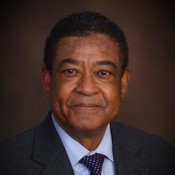
Part 1: The number-one issue facing young professionals, in my opinion, is how to take advantage of the various employment opportunities that exist due to their chemical engineering skills. Opportunities exist in new and emerging technologies, financial management, and sales/marketing, safety, health and environmental management, distribution/logistics, in addition to traditional employment in manufacturing and research. More young professionals should join the Institute to take advantage of the networking and sharing of information among our members to increase their awareness of these.
John Tao -- Running for the office of President Elect:
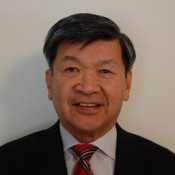
The issue that I see facing the YP is one keeping involved and staying involved and active with the Institute for the long term. Too often for those in industry, based on my own experience and observations, one moves up the ladder in management or in the commercial/business side of the company, and further away from day-to-day chemical engineering. This often happens at a time when you have family demands for your precious time, so the priority to be active with the Institute declines. In my own case, I was hardly involved with AIChE for two decades in my thirties and forties. I believe the YPs need to keep that in mind and stay involved, even if it is just making it to one meeting a year and attending some webinars. It is important for yourselves as well as the health of the Institute that the YPs don't bail out on being active members. You have invested in your education and you should keep in mind that many chemical engineering professionals move into higher positions in business, marketing/ sales, IT, finance, commercial development, planning, supply chain, procurement, etc. as opposed to working in engineering or manufacturing/operations. But it's the chemical engineering education and training that launched you into these positions, and the Institute can continue to help you with your career through continuing education, and other aspects of career development. Furthermore, the most important aspect of being active with the Institute is the networking; this can lead to your next step in your career and can help in so many different ways.
Jim Hill -- Running for the office of Secretary:

This is something you will have to tell me. Of course you need to keep up-to-date technically and perform well in your job. However many employers tell me that a critical need these days is for employees to be able to work in teams and to communicate effectively. You've probably heard this before. A second issue that all ChE's face is the job market. With the restructuring that has occurred in the petroleum and chemical industries, world-wide financial problems, and the emergence of India and China as industrial powers, some jobs and industries may be at risk; it is important to be flexible and to maintain professional contacts.
Christine Seymour -- Running for the office of Secretary:

It isn't my dad's chemical engineering world anymore - back then, most chemical engineers worked in the petro chemical industry and worked in the same industry their whole career. Today chemical engineers work in many different industries and in many different roles. I worked in chemical process development for 10 years and now I'm in regulatory. I think it is difficult to keep connected to my chemical engineering core while working in a very multi-disciplinary field - and, a little plug for the society, AIChE helps keep me connected to my chemical engineering technology base and friends that I would otherwise lose touch with.
Raymond Cocco -- Running for the office of Director:
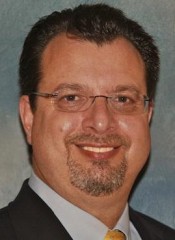
Management. Today, our young engineers are inundated with an ever-expanding pool of technology that needs to be comprehended in half the time we had twenty years ago. Time, technology, and contact management skills are more important than ever in becoming a successful engineer. Projects need to be prioritized, and an engineer needs to know how to make realistic milestones and deadlines. He or she needs to learn the skills of how to barter with management on those deadlines. He or she need to know how to determine the critical path to ensure those milestones and deadlines are met. Project success is also dependent on the available and soon-to-be-available technology in terms of both science and business. Today's decisions need to be data-driven and the data needs to be correct and concise. Experiments and simulations need to be statistically significant. He or she needs to manage what is in the literature, what has been done in the past, and what needs to be done now. Finally, contact management is equally important in project success. This is the soft skill that many engineers tend to avoid. It means identifying your key stakeholders (and your team is a stakeholder too), and communicating with those stakeholders on a timely basis. The world has gotten expensive, and gone are the days of building pilot plants based on ideas alone. Management needs to know your work process, they need to know the technology gaps, and they need to know a realistic timeline and any deviations with that timeline. If management is calling you for these answers, you are already too late. So management is the number one issue facing our young professional. It is a skill, few get taught getting out of school but it a skill that is needed for success, perhaps the most important skill needed for success.
Tom Degnan -- Running for the office of Director:

Nearer term, the number one issue is, without question, the global economy. Our profession is inextricably linked with manufacturing, health care (especially pharmaceuticals), and energy. All three sectors are facing the uncertainty that is associated with the slow global recovery from the 2008 recession. Employers are more selective in tough times and fewer individuals are willing to change jobs or even to undertake career risks such as starting their own companies when economic growth is so uncertain. At the same time, some in our profession, who may have contemplated retiring at an earlier age, are continuing to work, resulting in fewer new employment opportunities opening up. Longer term, the outlook is much brighter, since these three sectors (manufacturing, health care, and energy) offer the greatest opportunity for further improvements in productivity. They are also the sectors most critical to improvements in our global standards of living. As professionals, members of my generation have to work to promote economic growth while not cascading indebtedness on future generations.
L.S. Fan -- Running for the office of Director:
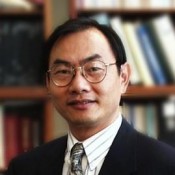
Mentorship. With the broad choices, new challenges and multiple career pathways that chemical engineers can embark upon, it is important to foster young professionals by providing guidance. Many young professionals have discussed the difficulty in finding the right mentor. Inequality still exists in many workplaces. Young professionals--particularly female or minority chemical engineers--are not well equipped to deal with conflicts at work. Thus, they need significant mentoring not only for career development but also conflict management. AIChE should support, promote, and facilitate mentoring for young professionals. With the increasing ease and different modes of communications, AIChE can take advantage of these collaborative networks. Not only will this type of mentorship fill a much needed gap, but also a lifelong program that will build a broader and more integrated chemical engineering community.
Paula Hammond -- Running for the office of Director:
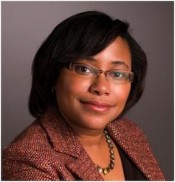
A key issue is how to continually adapt skills to address new areas of chemical engineering, which has become relevant even to those who are recent graduates. As new methods of online and virtual education options are introduced to many of our major universities, young chemical engineering professionals will want to know how to best take advantage of learning opportunities, and how to find ones that best fit their needs. Chemical engineers also increasingly need a society that will bring together key knowledge in emerging fields with high quality talks, and opportunities to learn from and meet with new and established leaders in their fields. At present, networking and professional connections have expanded into a number of different electronic/social media platforms; however, true quality interactions are still difficult to find and to build with companies and with established leaders in academia. Young chemical engineers would benefit from a more thoughtful integration of modern technologies and more direct opportunities to meet with peers and senior professionals through AIChE.
Annette Johnston -- Running for the office of Director:

Young Engineers have to define their expertise for themselves. Their professional identity will not be shaped by the firms they work for. Many of them will find that they have to change firms many times, either from economic necessity, or for professional growth. Young engineers must accept that job changes are the norm, and plan for those changes to their advantage. Each career change should be part of an overall "design space" for their professional identity. The challenge is to know what that identity is, and to continually see a path toward it.
Michael Poirier -- Running for the office of Director:

The changing relationship between employers and employees. Chemical engineers today will typically have multiple employers in their career. The defined benefit pension is being replaced with defined contribution pensions and 401Ks. Health care benefits are being scaled back. Training and conference budgets are being reduced. Learn more about the candidates by reading their bios and then vote. http://www.aiche.org/election



Comments
Thank you for putting together this series. It was great to get an insight on what each candidate felt the roles and challenges of YPs are for AIChE in the coming years.